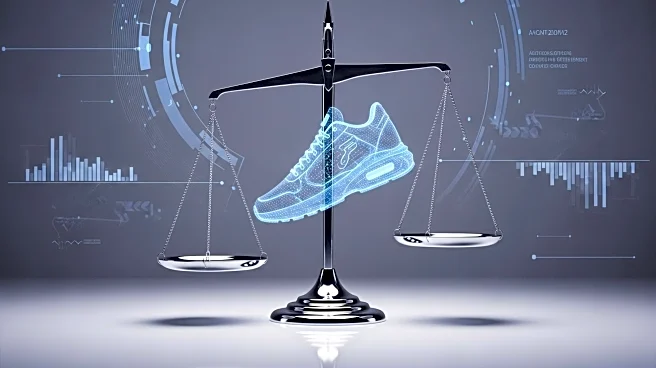What's Happening?
Nike and StockX have reached a settlement in their legal battle, which has been ongoing for three years. The dispute began when Nike sued StockX over its Vault NFT program, alleging trademark infringement due to the use of Nike's footwear images in StockX's NFTs. Additionally, Nike accused StockX of selling counterfeit Nike sneakers, undermining StockX's authenticity claims. The settlement was filed with prejudice, meaning neither party can revisit the matter, and both will cover their own legal fees. This resolution comes ahead of a trial that was scheduled for October 14, avoiding further complications.
Why It's Important?
The settlement between Nike and StockX is significant for the sportswear and secondary market industries. Nike, a major driver of StockX's business, had previously partnered with StockX to sell limited sneakers through its bidding platform. The resolution of this case may pave the way for future collaborations between the two companies. The legal battle highlighted critical issues regarding trademark rights and the authenticity of products in secondary marketplaces, which are increasingly relevant as these markets grow. The outcome may influence how brands manage their products post-sale and address counterfeit concerns.
What's Next?
While the settlement does not guarantee renewed collaboration between Nike and StockX, it opens the possibility for future partnerships. Both companies have undergone leadership changes, which may impact their strategic directions. The resolution of this case may also prompt other brands to reassess their legal strategies concerning secondary marketplaces and NFTs. As the industry evolves, stakeholders will likely continue to navigate the complexities of trademark rights and product authenticity.
Beyond the Headlines
The case between Nike and StockX underscores the evolving nature of intellectual property rights in the digital age. As brands explore NFTs and digital tokens, legal frameworks must adapt to address new challenges in trademark protection and counterfeit prevention. This settlement may influence future legal standards and practices in the industry, encouraging companies to innovate while safeguarding their brand integrity.









